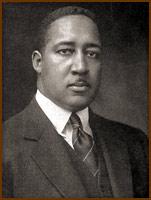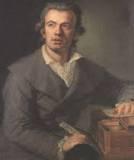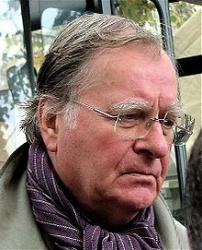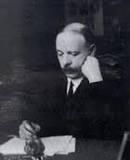Planning worship?
Check out our sister site, ZeteoSearch.org,
for 20+ additional resources related to your search.
- |
User Links
Person Results
‹ Return to hymnal





Export as CSV
Samuel Webbe
1770 - 1843 Person Name: Samuel Webbe Jr. Hymnal Number: 266 Adapter of "RICHMOND" in Glory to God Samuel Webbe, Jr. (1770-1843), adapted the tune RICHMOND. He was organist at Paradise Street Unitarian Church, Liverpool (1798). Later he succeeded his father as organist at the Spanish Ambassador’s Chapel, London (1817), and then St. Nicholas’ Church and St. Patrick’s Roman Catholic Chapel, Liverpool.
--The Presbyterian Hymnal Companion, 1993
Samuel Webbe
Johann Schop

1590 - 1667 Hymnal Number: 130 Composer of "ERMUNTRE DICH" in Glory to God Johann Schop Germany 1590-1667. Born at lower Saxony, Germany, he became a Lutheran composer and violinist, much admired for his virtuoso and technical ability. In 1614 Duke Friedrich Ulrich made him a probationary musician in the Hofkapelle at Wolfenbuttel. He performed playing various instruments, but excelled as a violinist. He was engaged permanently in 1615, but the same year he responded to a summons to join the flourishing musical establishment of King Christian IV of Denmark in Copenhagen. There he met English viol player, William Brade, who had earlier been in service to Hamburg, Germany (and may have taught Schop there). Schops compositions for the violin set impressive demands for that area at that time. He also played other instruments, including the violi, lute, cornet, trombon, trumpet, zinke, and violin (virtuoso). In 1619 Schop and Brade left Copenhagen to escape the plague. He then went to Iburg, where he worked at the courtof the Osnabruck bishop, Philipp Sigismund. Schop had such a reputation that he soon acquired a post as Kapellmeister at an establishment in Hamburg and was the first member of the council music. In 1621 he was its director and the leading municipal violinist in that city, which offered him a substantial income for his participation in the church music program. He also was organist at the Jacobikirche. In 1634 he again traveled to Copenhagen with Heinrich Schutz and Heinrich Albert for the wedding of Crown Prince Christian. He won a violin contest there. Few German violinists were of his caliber musically. He returned to Hamburg, and the Danish king tried several times to woo him back to Denmark, but he stayed in Hamburg, becoming a director of music. He published books of violin music in 4 to 6 parts. He wrote two books of well-loved dance pieces and sacred concertos. He co-founded a school of song writing there in Hamburg with Thomas Selle. Many of his tunes were writtten for fellow townsmen and friend Johann Rist. Some of his music was performed at the Peace of Westphalia celebrations. Some of his tunes were used by chants in a cantata. Schop was married (wife’s name not found) and they had two sons, Johann II, and Albert, who also became musicians. He died in Hamburg.
John Perry
Johann Schop
Johann Gottfried Schicht

1753 - 1823 Hymnal Number: 4 Harmonizer of "GROSSER GOTT, WIR LOBEN DICH" in Glory to God Johann Gottfried Schicht
Born: September 29, 1753 - Reichenau, Zittau, Germany
Died: February 16, 1823 - Leipzig, Germany
Johann Gottfried Schicht
Max Landsberg
1845 - 1927 Hymnal Number: 49 Translator (stanzas 2, 4) of "The God of Abraham Praise" in Glory to God Max Landsberg was born in Berlin as the eldest son of a long-established Jewish family, shortly before his father, Meyer Landsberg, in Hildesheim took a job as a rabbi.
First, Landsberg was privately educated, but then went to the high school Josephinum in Hildesheim . After graduation he studied in Göttingen, Breslau and Berlin. The training to become a rabbi he received from Lazarus eagle at the University of Kassel, Samuel Ephraim Meyer at the University of Hanover and of Abraham Geiger in Wroclaw. On 7 November 1866 he was codd at the University of Halle with his work Vita sultani Muradi "a Mohammed Amyn Mohibby, e. Mss. Bibliothecae regiae Berolinensis, addita versione latina atque adjectis adnotationibus Dr. phil. Doctorate. Since 1866, he was pin Rabbi and teachers at the seminar for Jewish teachers in Hanover. rabbi he was to his Semicha 1870.
Shortly before his departure to the U.S. married Landsberg on 26 February 1871 in Hanover Miriam Isengarten (* 1847, † April 16, 1912 in Baltimore)
In the fall of 1869, as in 1848 decided orthodox founded community in Rochester, hire a rabbi who could preach both in German and in English and should be a "gentleman of advanced ideas and reformed religious views". This quote is an excerpt from the ad for the position of rabbi in Rochester in the weekly magazine "The American Israelite", the public forum of the American Reform Judaism. After they found no suitable person in the country, they turned to Abraham Geiger, a pioneer of Reform Judaism in Europe. Geiger encouraged his former students to apply to this job. Because of its application in December 1870 Landsberg was invited and settled for Passover 1871 (early April 1871) to Rochester. By 1915, he stayed on as chief rabbi.
What the liturgical reforms were concerned in the community, so Landsberg based on that of David Einhorn in 1858 published prayer book Olat Tamid. It contained the majority of prayers in German and was printed according to and read from left to right. However, there were already 10 days after launch on 27th April 1873 in the town of B'rith Kodesh to controversy. Then the parish council withdrew this prayer book and replaced it with a more tradition-setting, but also reforming the liturgy, which from Temple Emanu El was published in New York City. Despite the shortcomings Landsberg used this prayer book over a decade. On the other hand, it prompted him to contribute their own ideas of liturgical revision. The result was that in 1880, along with Sol[omon] Wile (1853-1931) published book Hymn Book for Jewish Worship. For two-thirds of it contained English-language songs, and the remaining were in German. Sol Wile at the time was president of the Temple B'rith Kodesh and in his preface to the hymnal, which was more intended for the community, as for the rabbi and the choir, he wrote that he is a "inbrünstigeren" of these songs worship hoped.
But only the ritual prayer book for Jewish Worship by Max Landsberg itself, introduced in 1884, the community took to the center of the radical Jewish reform movement. It was the result of Landsberg efforts, in accordance with the ideas of community members to create a new liturgy, which "conform to the sentiments of the living generation" was. Landsberg not only received praise, but also harsh criticism, including by Isaac Mayer Wise. Even in our own community Landsberg faced a opposition, but this did not change in a takeover of the liturgy. It Landsberg, despite all the criticism has managed to create a completely appropriate in the English language and the Reform movement liturgy.
An outstanding event for Max Landsberg in 1895 was the focus of the annual meeting of the Central Conference of American Rabbis (CCAR). He himself was in this movement since its founding in 1889 active. At this meeting there was a full agreement in the views of Isaac Mayer Wise and Landsberg that the greatest achievements of American Reform Judaism was to have freed the Jews from the ceremonial constraints.
Another special feature of this period was the increased involvement of women in the community and especially in community work. There were just the women who took part in the worship and wanted to have more influence on the fortunes of the community. Here, Max Landsberg did show, by advocating openly for the rights of women. In his essay The Position of Women Among the Jews he grappled with the theological implications of women's emancipation.
But Max Landsberg himself alienated since that time increasingly of the community. Maybe because it a lifelong Office guidance was issued never, but he had to extend from the council's term of office again and again. Already in July 1910, adjusted for the community Horace J. Wolf as an assistant. His contract was also extended several times. They tried to limit Landsberg's influence on the community.
Particularly hard hit Landsberg his wife Miriam's death in 1912. This event was marked by bitterness his last years, so it took every joy of life. When, in March 1913, a committee at Landsberg "the lack of interest in the religious life of the congregation" found and published recommendations in October, Max Landsberg offered his resignation. Well with regard to the posted position of Landsberg gave you his resignation until December 1914 known, but he stepped into force on 1 März 1915.
In the United States, Max Landsberg sat for a reform of Jewish worship one. So he held his services in English and not in Hebrew. Also published by him prayer books passed to two-thirds of English songs and the rest in German language. He also pushed for the marriage of Jews and non-Jews. As part of the American Reform Judaism Landsberg was among the rabbis, which began in the municipality for exemption from the ceremonial constraints, to use appropriate liturgies and thereafter led worship.
--de.wikipedia.org/wiki (excerpts)
Max Landsberg
John W. Work

1901 - 1967 Person Name: John W. Work III Hymnal Number: 136 Arranger of "GO TELL IT" in Glory to God John Wesley Work III (1901-1967)
Composer, educator, choral director, and ethnomusicologist John Wesley Work III was born on June 15, 1901, in Tullahoma, Tennessee, to a family of professional musicians. His grandfather, John Wesley Work, was a church choir director in Nashville, where he wrote and arranged music for his choirs. Some of his choristers were members of the original Fisk Jubilee Singers. His father, John Wesley Work Jr., was a singer, folksong collector and professor of music, Latin, and history at Fisk, and his mother, Agnes Haynes Work, was a singer who helped train the Fisk group. His uncle, Frederick Jerome Work, also collected and arranged folksongs, and his brother, Julian, became a professional musician and composer.
Work began his musical training at the Fisk University Laboratory School, moving on to the Fisk High School and then the university, where he received a B.A. degree in 1923. After graduation, he attended the Institute of Musical Art in New York City (now the Julliard School of Music), where he studied with Gardner Lamson. He returned to Fisk and began teaching in 1927, spending summers in New York studying with Howard Talley and Samuel Gardner. In 1930 he received an M.A. degree from Columbia University with his thesis American Negro Songs and Spirituals. He was awarded two Julius Rosenwald Foundation Fellowships for the years 1931 to 1933 and, using these to take two years leave from Fisk, he obtained a B.Mus. degree from Yale University in 1933.
Work spent the remainder of his career at Fisk, until his retirement in 1966. He served in a variety of positions, notably as a teacher, chairman of the Fisk University Department of Music, and director of the Fisk Jubilee Singers from 1947 until 1956. He published articles in professional journals and dictionaries over a span of more than thirty years. His best known articles were "Plantation Meistersingers" in The Musical Quarterly (Jan. 1940), and "Changing Patterns in Negro Folksongs" in the Journal of American Folklore (Oct. 1940).
Work began composing while still in high school and continued throughout his career, completing over one hundred compositions in a variety of musical forms -- for full orchestra, piano, chamber ensemble, violin and organ -- but his largest output was in choral and solo-voice music. He was awarded first prize in the 1946 competition of the Federation of American Composers for his cantata The Singers, and in 1947 he received an award from the National Association of Negro Musicians. In 1963 he was awarded an honorary doctorate from Fisk University.
Following Work's collection Negro Folk Songs, the bulk of which was recorded at Fort Valley, he and two colleagues from Fisk University, Charles S. Johnson, head of the department of sociology (later, in October 1946, chosen as the university's first black president), and Lewis Jones, professor of sociology, collaborated with the Archive of American Folk Song on the Library of Congress/Fisk University Mississippi Delta Collection (AFC 1941/002). This project was a two-year joint field study conducted by the Library of Congress and Fisk University during the summers of 1941 and 1942. The goal of the partnership was to carry out an intensive field study documenting the folk culture of a specific community of African Americans in the Mississippi Delta region. The rapidly urbanizing commercial area of Coahoma County, Mississippi, with its county seat in Clarksdale, became the geographical focus of the study. Some of the correspondence included in this collection between Work and Alan Lomax, then head of the Archive of American Folk Song, touches on both the Fort Valley and the emerging Fisk University recording projects.
John Wesley Work died on May 17, 1967.
--memory.loc.gov/ammem/ftvhtml/
John W. Work
Johann G. Naumann

1741 - 1801 Person Name: Johann G. Naumann, 18th cent. Hymnal Number: 599 Composer (attributed to) of "DRESDEN AMEN" in Glory to God Johann Gottlieb Naumann; b. near Dresden, 1741; d. Dresden, 1801
Evangelical Lutheran Hymnal, 1908
==========================
Born: April 7, 1741, Blasewitz, Dresden, Germany.
Died: October 23, 1801, Dresden, Germany.
Buried: Eliasfriedhof, Dresden, Germany.
Naumann received his musical training in his town school, where he learned piano and organ. Later, he studied at the Kreuzschule in Dresden and was a member of the Dresden Kreuzchor. In Dresden, he learned from the organist and cantor of the Kreuzschule, Gottfried August Homilius, a student of Bach. In May 1757, he traveled to Italy with Swedish violinist Anders Wesström. Composer Giuseppe Tartini encountered Naumann in 1762 and took an interest in his work. Later that year, Naumann made his debut as an opera composer in Venice with Il Tesoro Insidiato. After his successful 1764 production of Li Creduti Spiriti, he was engaged as the second church composer at the Dresden court, on the recommendation of composer Johann Adolf Hasse.
In 1777, as a result of negotiations by Swedish diplomat Count Löwenhjelm, Naumann was appointed to reform the Stockholm Hovkapell and help King Gustavus III in his opera plans. His work in Sweden led to the 1782 production of his opera Cora och Alonzo at the inauguration of the new opera house in Stockholm, and the 1786 production of Gustaf Wasa, based on an idea of the king for a Royal Swedish Opera. After a period as guest composer in Copenhagen (1785-56), he returned to Dresden, where he became Oberkapellmeister.
In 1792, Naumann married Catarina von Grodtschilling, daughter of a Danish vice-admiral. His grandson was composer Ernst Naumann (1832–1910).
http://www.hymntime.com/tch/bio/n/a/u/naumann_jg.htm
==============================
http://en.wikipedia.org/wiki/Johann_Gottlieb_Naumann
Johann G. Naumann
Huub Oosterhuis

1933 - 2023 Hymnal Number: 404 Author of "What Is This Place" in Glory to God Hubertus Gerardus Josephus Henricus Oosterhuis (born 1 November 1933, Amsterdam) is a controversial Dutch theologian and poet. He is mainly known for his contribution to Christian music and liturgy in the Dutch language, used in both Protestant and Roman Catholic churches, although there is much Catholic opposition to his work, which has resulted in the banning of several songs in certain dioceses. He is the author of over 60 books and at the time of over 700 hymns, songs, Psalms (often in an own interpretation), and prayers.
Oosterhuis was a Jesuit and is a Roman Catholic priest.
In 1954, inspired by Che Guevara who said that churches have the potential to transform the social structure of society, Oosterhuis combined his priesthood with political activism.
In 1965, Oosterhuis became one of the major supporters of ecumenism, following the modernist interpretation of the Second Vatican Council. He started out to rewrite the liturgy and make it acceptable to all. Some of his changes were considered controversial within the Roman Catholic Church especially writing the prayer for agnostics: "Heer, als U bestaat, kom dan onder ons" ("Lord, if You exist, come amongst us").
His political views, the conflicts regarding the liturgy and his dismissal of celibacy led to Oosterhuis being expelled from the Jesuit order in 1969. He still however remained working as a priest, running his church in Amsterdam out of the responsibility of a bishop, at the time for about forty years. He is still focussed on writing liturgy, poetry and essays.
Back in the sixties and seventies his liturgical texts were put to music by his fellow former Jesuit Bernard Huijbers (1922–2000). The co-operation between Oosterhuis and Huijbers ended. The last engaged himself more and more in a 'spirituality-without-God' or '-Thou', whereas the former kept to his biblical prayers, hymns, psalms. After they both split up and Huijbers moved to the South of France Oosterhuis' main composers were two of Huijbers' pupils, Antoine Oomen (born 1945) and Tom Löwenthal (born 1954).
Oosterhuis founded the discussion center "De Rode Hoed" ("The Red Hat") in Amsterdam in 1989. The building was a former Remonstrant shelter church, hidden because Remonstrantism was outlawed in the 17th century. The building was more or less deserted at the time. Oosterhuis wanted to use it for his student organization (1990) and create a discussion center. Its nice interior made it also very suitable for TV-shows. After a short period Oosterhuis was replaced by a managing-director for a more commercial exploitation of this prominent building in Amsterdam's Canal zone.
In 2002 Queen Beatrix of the Netherlands asked him to deliver the eulogy at the funeral of her Prince-Consort Claus von Amsberg, a longtime personal friend. The New Church in Delft was packed with heads of state, high dignitaries, forming an unexpected audience. That same week the Protestant VU University in Amsterdam granted Oosterhuis an honorary PhD (or Doctorate) in Theology.
It was at De Rode Hoed where André van der Louw announced his Social Democratic Renewal Program which was an incentive to reform the Labour Party. Oosterhuis ultimately choose the lesser known Socialist Party as he viewed it closer to socialist ideals. He also opined that The Socialist Party is closer to the social ethics of the Bible than many Christian parties."
In 2006 elections Oosterhuis stood as final candidate, a symbolic position, for the Socialist Party.
Oosterhuis translated the Torah together with Alex van Heusden, which was released in five separate books, as an attempt to translate the first five books of the Bible as close to contemporary Dutch as possible without losing the style figures of the original Hebrew text.
Huub Oosterhuis is the father of the musicians Trijntje Oosterhuis and Tjeerd Oosterhuis.
Only a very few books, poems, verses of Huub Oosterhuis were translated into English: Fifty Psalms, Your Word is Near, At Times I See, The Children of the Poor Man, Wake Your Power (CD) - some more.
--en.wikipedia.org/wik
Huub Oosterhuis
Martin E. Leckebusch
b. 1962 Hymnal Number: 60 Author of "Your Endless Love, Your Mighty Acts (Psalm 106)" in Glory to God
Martin E. Leckebusch
Patrick Matsikenyiri
1937 - 2021 Hymnal Number: 590 Arranger of "HALLELUJAH (Maraire)" in Glory to God
Patrick Matsikenyiri


 My Starred Hymns
My Starred Hymns



